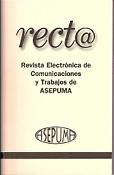Benchmarking the energy performance of office buildings: A data envelopment analysis approach
DOI:
https://doi.org/10.24310/recta.17.2.2016.19932Keywords:
Energy efficiency, Data envelopment analysis, Office building, ChileAbstract
The achievement of energy efficiency in buildings is an important challenge facing both developed and developing countries. Very few papers have assessed the energy efficiency of office buildings using real data. To overcome this limitation, this paper proposes an energy efficiency index for buildings having a large window-to-wall ratio, and uses this index to identify the main architectural factors affecting energy performance. This paper assesses, for the first time, the energy performances of 34 office buildings in Santiago, Chile, by using data envelopment analysis. Overall energy efficiency is decomposed into two indices: the architectural energy efficiency index, and the management energy efficiency index. This decomposition is an essential step in identifying the main drivers of energy inefficiency and designing measures for improvement. Office buildings examined here have significant room for improving their energy efficiencies, saving operational costs and reducing greenhouse gas emissions. The methodology and results of this study will be of great interest to building managers and policymakers seeking to increase the sustainability of cities.
Downloads
Publication Facts
Reviewer profiles N/A
Author statements
Indexed in
-
—
- Academic society
- N/A
- Publisher
- UMA Editorial. Universidad de Málaga
Downloads
Published
How to Cite
Issue
Section
License

This work is licensed under a Creative Commons Attribution-NonCommercial 4.0 International License.









